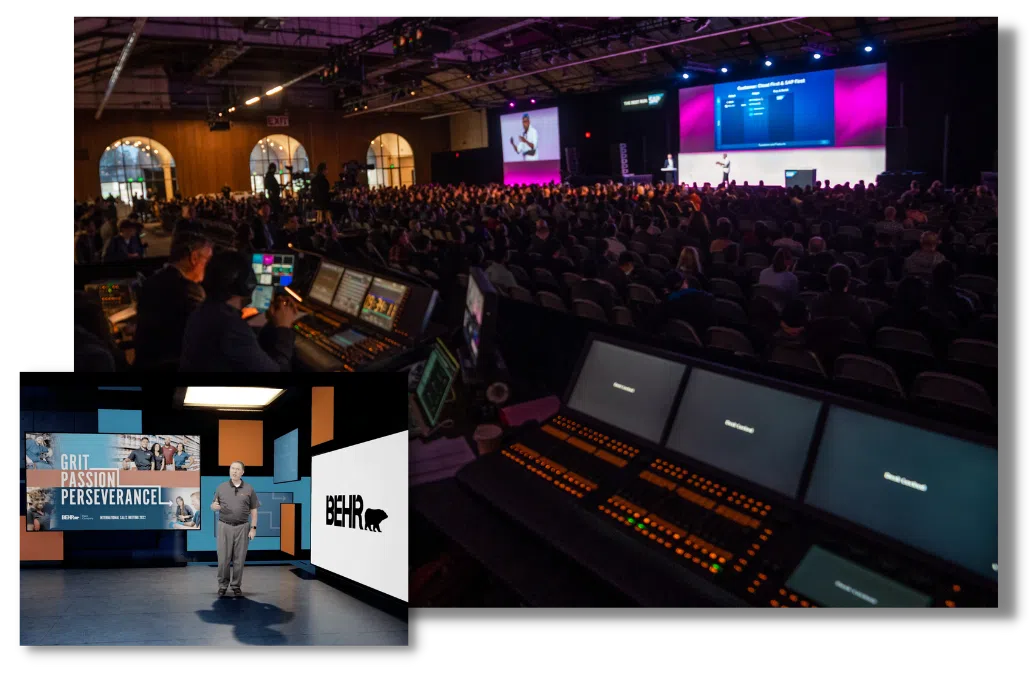Understanding the Importance of Events Administration in the Production Market
The significance of events monitoring within the manufacturing market can not be overemphasized, as it offers as a pivotal element in bridging the space between imaginative vision and effective execution. By highlighting logistical coordination, budget adherence, and stakeholder interaction, effective occasions can elevate brand interaction and operational performance.
Duty of Occasions Administration
Events administration plays a pivotal duty in the manufacturing sector, offering as the bridge between imaginative concepts and concrete end results. It encompasses a wide variety of responsibilities, consisting of preparation, performing, and evaluating different events, which are essential for showcasing manufacturings, involving target markets, and promoting partnership among stakeholders.
One of the vital features of events management is logistical coordination. This includes protecting places, preparing devices, and taking care of timelines to ensure that every detail lines up with the overarching vision of the production. Furthermore, occasions supervisors are charged with budgeting and source allowance, which needs an eager understanding of financial restraints and the ability to make best use of value.
Additionally, reliable communication and stakeholder management are essential parts of occasions management. Specialists in this field need to liaise with a varied set of people, consisting of musicians, sponsors, and suppliers, to produce a cohesive experience. They likewise play a crucial duty in advertising and promotion, making use of numerous channels to produce interest and participation.

Benefits for Production Business
A reliable events management approach can yield significant advantages for manufacturing companies, boosting their overall functional performance and market presence. By streamlining the planning and execution of occasions, production companies can allocate resources better, decreasing expenses connected with mismanagement or last-minute changes. This performance not only saves cash yet likewise allows groups to concentrate on their core proficiencies, ultimately causing higher-quality outputs.
Moreover, well-executed occasions can work as effective advertising and marketing devices, enhancing brand name presence and promoting more powerful partnerships with customers, stakeholders, and the public. Involving events produce opportunities for networking and collaboration, which can lead to new collaborations or projects that amplify a business's reach within the industry.
Additionally, events can give useful insights with audience responses and interaction metrics, allowing manufacturing firms to refine their approaches and offerings. This data-driven approach can lead to more targeted marketing efforts and improved consumer fulfillment.
Crucial Element of Successful Events
Successful events depend upon numerous essential elements that add Click Here to their total effect and effectiveness. Clear goals are vital; recognizing the purpose of the event permits for concentrated planning and execution. This entails determining the target market and customizing the occasion's content and activities to fulfill their demands.
In addition, careful preparation is important. More Help This includes developing a comprehensive timeline, assigning functions and obligations, and taking care of budgets successfully. Attention to logistics, such as my explanation place choice, tools leasings, and providing services, can not be overlooked, as they directly influence the event's success.
Another vital element is efficient communication. This includes not just internal coordination among group participants yet additionally exterior messaging to stakeholders and guests, making sure everybody is notified and engaged.
Challenges in Event Sychronisation
Coordinating an event presents an unique set of difficulties that can affect its overall success. Among one of the most substantial hurdles is managing time efficiently. Events frequently have limited timetables, and any type of delay can bring about a cascading effect on succeeding tasks, reducing the experience for attendees. Furthermore, logistical intricacies such as venue option, transportation, and devices services need precise preparation and control.

Budget plan constraints likewise posture a considerable difficulty. Occasion organizers need to navigate economic limitations while aiming to fulfill the expectations of stakeholders, which typically necessitates innovative remedies to optimize resources. Additionally, stakeholder management can be particularly intricate, as varying interests amongst sponsors, suppliers, and customers have to be harmonized to accomplish a natural vision.

Future Trends in Events Administration
Significantly, the occasions management industry is welcoming technological innovations that are reshaping the means events are intended and performed. One considerable pattern is the rise of digital and hybrid events, which use greater availability and flexibility for participants (production companies in charlotte nc). This shift allows organizers to reach larger audiences while lowering logistical prices related to typical in-person events
Another trend is the combination of information analytics tools to boost event experiences. By collecting and evaluating attendee information, occasion managers can tailor experiences to better satisfy target market choices and enhance interaction. This data-driven method not only boosts individual contentment but additionally gives useful understandings for future occasions.
Sustainability is additionally coming to be a centerpiece in occasions monitoring, with companies prioritizing eco-friendly practices such as reducing waste and carbon footprints. This trend aligns with more comprehensive social changes in the direction of ecological awareness, appealing to a demographic progressively concerned concerning sustainability.
Last but not least, using immersive technologies, such as enhanced reality (AR) and virtual reality (VIRTUAL REALITY), is readied to change event experiences, creating appealing and interactive settings that leave lasting impacts on guests. As these patterns remain to progress, they will unquestionably shape the future landscape of occasions management in the production sector.
Final Thought
In verdict, effective events administration is necessary for the production market, linking the void in between innovative principles and their implementation. Ultimately, a calculated technique to events monitoring is crucial for sustained industry growth.